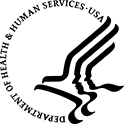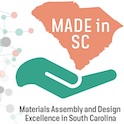
Current Funding: Fe-S cluster biogenesis
Our work on the Suf system is funded by the National Institutes of Health (NIH) via R01 grant GM 112919, now in it's fifth year after being renewed in the Spring of 2020,
USC's Columbia campus will resume normal operations Tuesday, Feb. 3. For more information, visit sc.edu/weather
We seek to understand the biochemical details of how the critical process of iron-sulfur (Fe-S) cluster biogenesis occurs in cells. We also are discovering how cells regulate Fe-S cluster biogenesis in response to environmental changes that perturb Fe-S cluster demand (such as iron starvation and oxidative stress) or as part of metabolic reorganization due to changes in nutrient availability.
Currently the main project in our lab is the study of the Suf Fe-S cluster biogenesis system in bacteria. This pathway is used in some bacterial pathogens for building Fe-S clusters under stress conditions, such as iron starvation or oxidative stress. We are taking advantage of the versatile model organism, Escherichia coli (or E. coli) to study this pathway. E. coli are gram-negative Proteobacteria that grow rapidly and can be genetically manipulated with a variety of techniques. They make an ideal single cell model to study this process. The E. coli Suf system consists of multiple proteins, most of which are encoded by the sufABCDSE operon. Most recently we have focused our efforts on characterizing the individual Suf proteins in vitro using purified proteins. We are studying how the proteins interact, the individual mechanistic roles of each protein in the Fe-S cluster assembly process, and how the proteins regulate each others activities to coordinate Fe-S cluster assembly.

Our work on the Suf system is funded by the National Institutes of Health (NIH) via R01 grant GM 112919, now in it's fifth year after being renewed in the Spring of 2020,

A new project on using the ferritin protein as a robust system for designing biomaterials is funded by the Materials Assembly and Design Excellence in South Carolina (MADE in SC) EPSCoR grant.